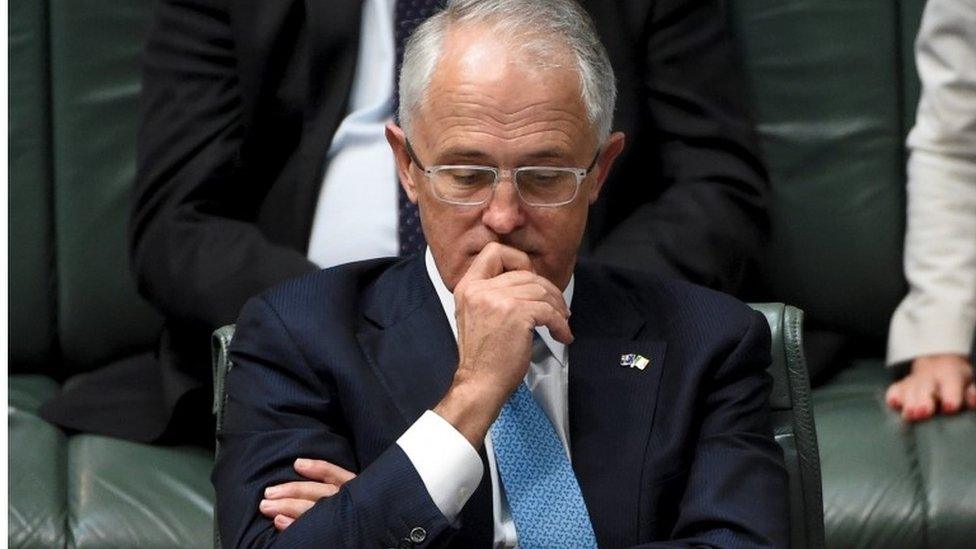All the Ds: Depp's dogs outdo double dissolution
- Published
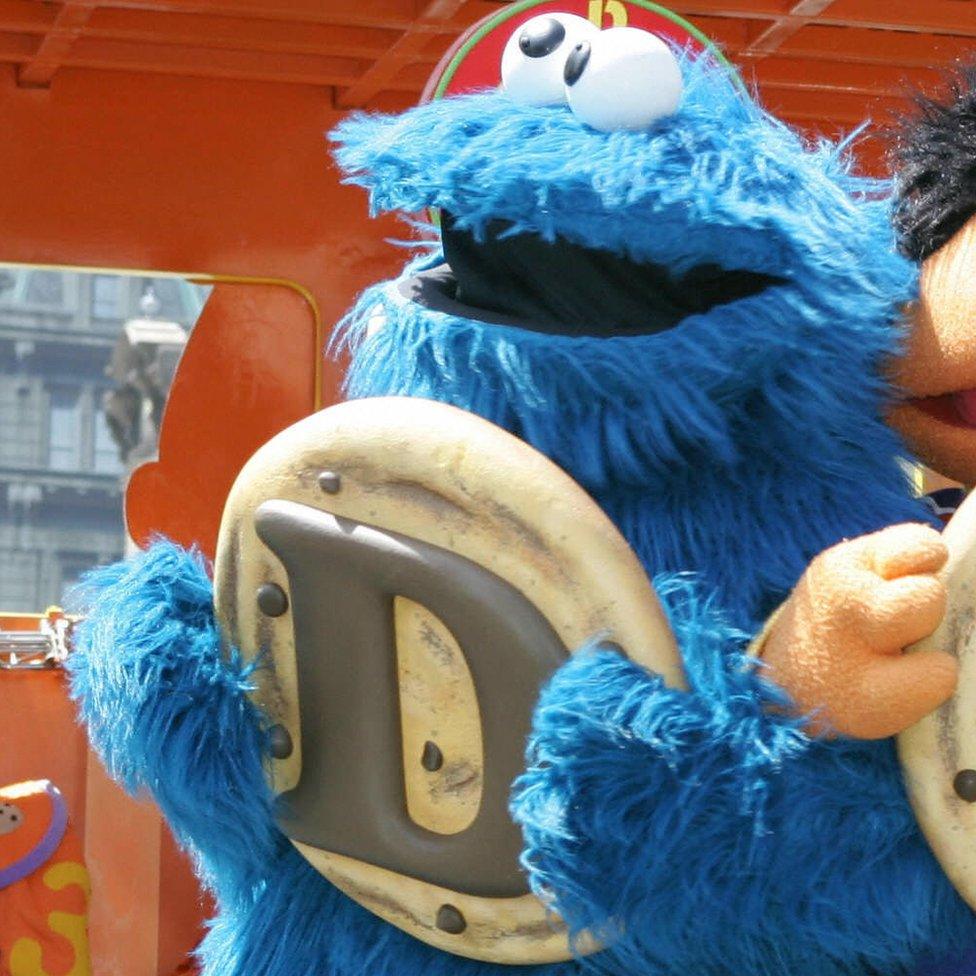
Like an ill-conceived edition of Sesame Street, this week in Australia has been brought to you by the letter D, external - from Depp's dogs to double dissolution.
On Monday, it seemed half of the country's journalists were up on the Gold Coast covering a Hollywood A-Lister and his wife Amber Heard as they tried to extricate themselves and their pet dogs Pistol and Boo from the so called War on Terrier.
The other half were down in Canberra as the prime minister (A-lister or D-lister depending on your political persuasion) confirmed he intended to dissolve both houses of parliament and call an early general election on 2 July.
One of those stories is big news, right? The other tittle-tattle?
Well, the BBC's online stats man tells me our stories on Depp's dogs garnered a total of around 3m page views.
Our most popular story on the double dissolution managed just 136,000 views.
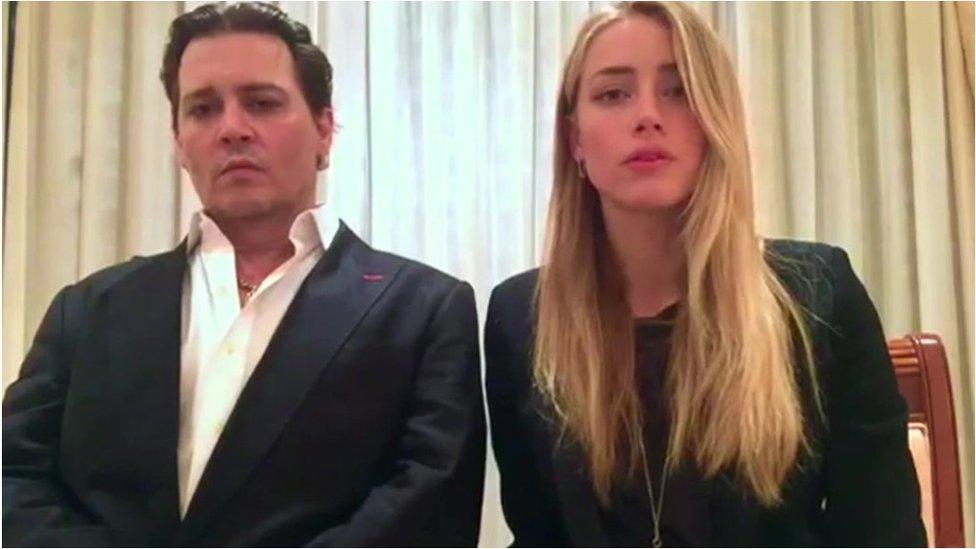
Johnny Depp and Amber Heard's strange apology video helped drive millions of page views on the BBC and elsewhere
Of course, not too much can be read into figures like this. After all, one of the BBC's most popular online stories was for many years Man Forced to Marry Goat, external.
Sex and animals is a potent combination in terms of online traffic. I guess you could say the Depp story featured two dogs and the world's sexiest man.
Malcolm Turnbull's double dissolution had none of the above.
Dreary dissolution
But I do think news that the country is likely going to the polls in July has generated little political fervour in Australia and has generally been greeted with a collective shrug.
Down under, general elections come thick and fast as it is.
They have to take place every three years, whereas in most democracies it's every four or five.
It was only in September 2013 - barely two-and-a-half years ago - that the country last went to the polls.
Add into the mix the fact that Australia's political parties have a persistent habit of ousting their leaders mid-term - there have been four different prime ministers in the last three years - and you get the sense that the country is in a constant state of churn.
For outside observers it's easy to lose track.
I once did a live interview with a BBC presenter in London and rather awkwardly had to explain to him that the person he thought was the Australian prime minister had actually been ousted six months earlier.
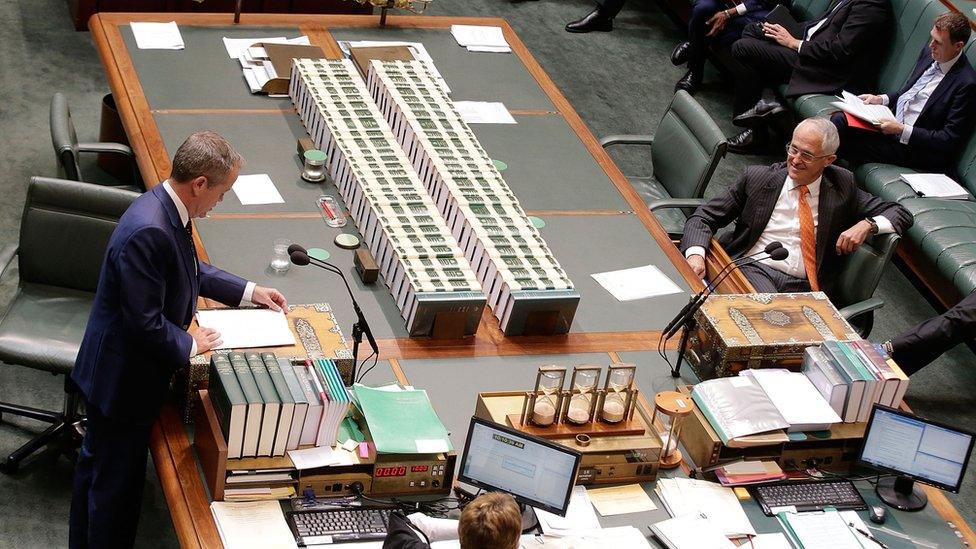
Opposition leader Bill Shorten speaks while Prime Minister Malcolm Turnbull looks on in Australia's lower house
Of course, it gives journalists lots to talk about but I sense the mood among the public is less enthusiastic.
Anyone who is familiar with the US system, where Congressional elections for the House of Representatives are held every two years, knows what a sense of constant political grind it creates.
The result is relentless campaigning, lobbying and fund raising, with only a brief window to actually get anything done before you have to start worrying about the next election.
Another problem with having elections so frequently is that it's all too easy for a prime minister to blame current problems on a previous government.
Dull drag to D-Day
In Australia this year, nobody really seems that clear what the election's defining issues will be.
In 2013 it was asylum seekers and Tony Abbott and Kevin's Rudd's pledges to "Stop the Boats".
But in 2016 the boats have been stopped and the government and the opposition Labor Party are largely on the same page in terms of asylum seeker policy.
It could be the economy.
But while there are perennial concerns that the good times may be over after a quarter-century of consecutive economic growth, Australia is not in the midst of an economic crisis.
It may well come down to personality - and there's not much of that around either.
After the political soap opera of the Kevin Rudd and Julia Gillard era and the gaffe-prone Tony Abbott, external, this year's principal protagonists look rather bland.
On the D theme, you might even say dull or dreary.
Both Malcolm Turnbull and his challenger, the Labor party's Bill Shorten, seem rather sensible and not terribly far apart politically.
But if it does come down to personality, Mr Shorten definitely has some catching up to do.
While polls show Labor neck-and-neck, external, if not marginally ahead, as a party, Malcolm Turnbull is still streets ahead in terms of personal approval ratings.
What is clear is that with the announcement of his intention to call the election early, this will be one of the longest campaigns in Australian history.
There are still 71 days to go until D-Day.
Hands up anyone who's feeling election fatigue already.
- Published19 April 2016
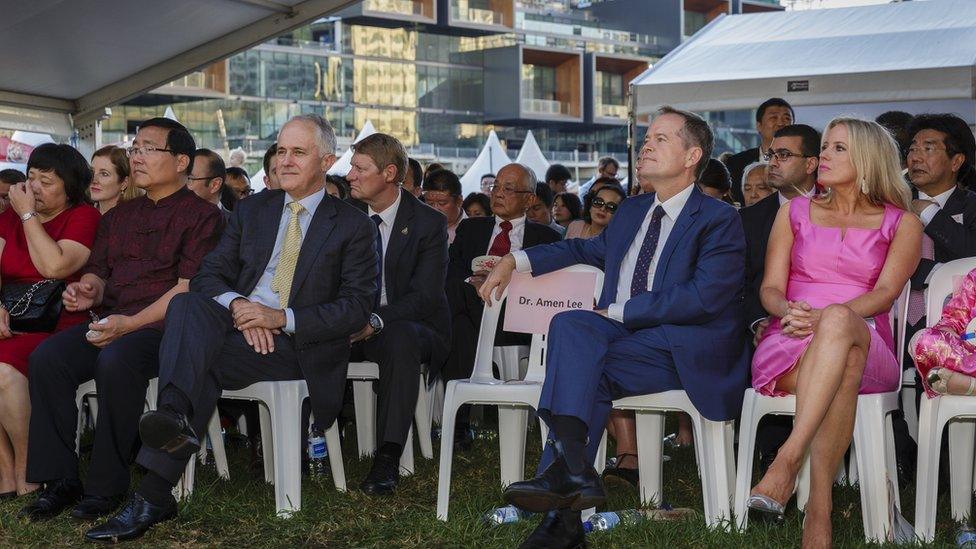
- Published19 April 2016
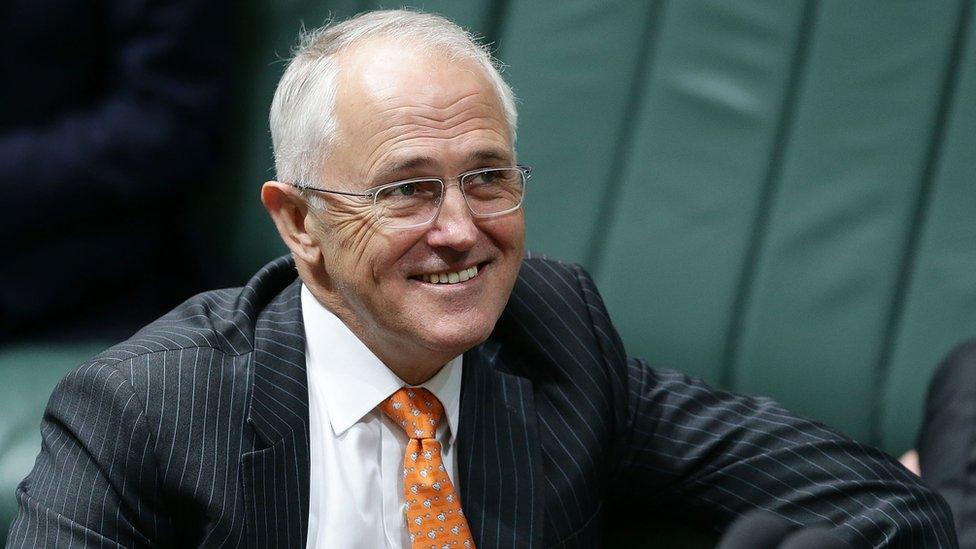
- Published18 April 2016
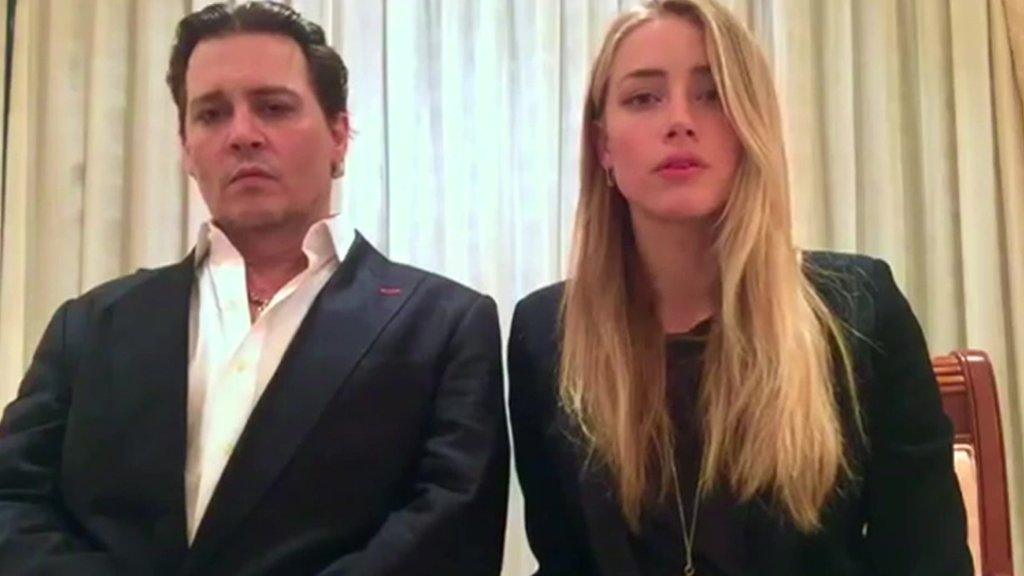
- Published18 April 2016
